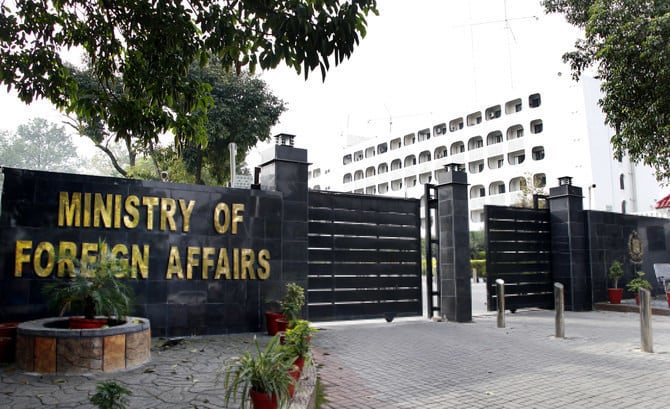On Monday, Pakistan turned over to the Indian High Commission a list of 231 inmates from India, including 184 fishermen and 47 civilians, who were held in its prisons.

According to a statement from the Indian Foreign Office, the 418 inmates from Pakistan were shared with a representative from the Pakistani High Commission in New Delhi. Among them were 337 civilians and 81 fishermen.
In 2008, as part of the Consular Access Agreement, both lists were exchanged at the same time. As per the terms of the agreement, on January 1 and July 1 of each year, the two countries must exchange lists of inmates held by the other.
On July 1, 2023, the high commission of Islamabad in New Delhi received a list indicating that 417 Pakistanis, including 74 fishermen, were detained in Indian prisons.
Similarly, the high commission of New Delhi in Islamabad received a list from Pakistan with the names and whereabouts of 308 Indian inmates, 266 of them were fishermen.
Both nations’ governments committed to providing consular access as part of the accord. Individuals from one nation who are currently in the custody of authorities in another must receive this within three months.
The two governments agreed that they would promptly share information about the sentencing decisions made about citizens of the other country. Within one month of a person’s national status being confirmed and their sentences being served, both governments have committed to releasing and repatriating them.
In the event of an arrest, detention, or sentencing based on security or political concerns, both parties have the right to review the case independently. Each party also committed to using its discretion, within the bounds of its laws and regulations, to permit the early release and repatriation of individuals in exceptional circumstances that demanded or necessitated humanitarian and compassionate considerations.
Following the completion of their sentences and confirmation of their national status, the Indian government has been requested to release and return all Pakistani civilian prisoners and fishermen.
The lack of a distinct maritime border in the Arabian Sea results in frequent arrests of fishermen from both surrounding countries who cross into the other’s territory. On top of that, the fishing boats don’t have the technology that would allow them to pinpoint their exact location.










































